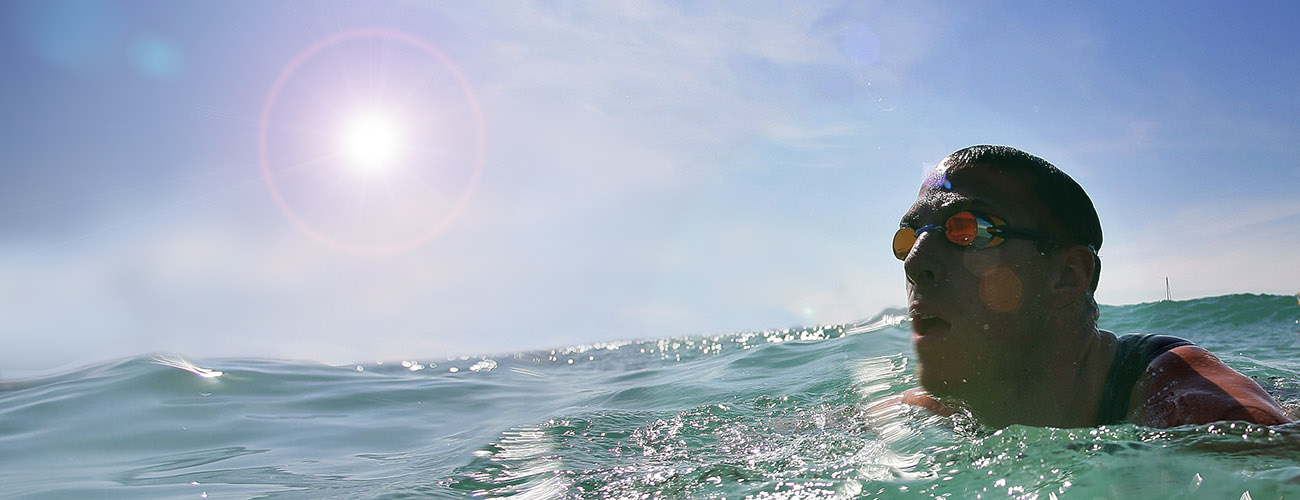
Hyperthermia is an abnormally high body temperature which can lead to heat cramps, heat exhaustion or heatstroke. Hyperthermia is the opposite of Hypothermia. Hyperthermia occurs when the body’s heat-regulation system becomes overwhelmed by outside factors, causing a person’s internal temperature to rise dangerously. Hyperthermia is usually the result of overexertion in hot, humid environments.
The signs and symptoms of hyperthermia include:
- dizziness
- weakness
- thirst
- coordination issues
- trouble concentrating
- skin that’s cool and clammy
- irritability
- confusion
- coordination issues
- flushed skin
- reduced sweating
- weak or rapid pulse
- fainting
Hyperthermia’s most serious stage is heat stroke. It can be deadly. Normal body temperature is 98.6°F (37°C). Heat stroke can occur when your body temperature reaches above 104°F (40°C). Fainting is often a result, and that can easily be fatal when swimming.
Fran Crippen, a medal-winning open-water swimmer on the U.S. national team, died in the United Arab Emirates in 2010 while swimming a 10k open water race in waters which were 84-86° F (30°C). The 26-year-old swimmer from suburban Philadelphia disappeared approximately a mile from the finish. It took two hours to locate his body. Several other swimmers were treated for heat exhaustion after the race.
Wetsuits, which are made of neoprene rubber, are designed to insulate swimmers and help them retain body heat in cold water. To reduce the chance of a swimmer suffering from hyperthermia, the Glen Lake Swim and other USMS and USAT sanctioned events set a water temperature of 78° as the cutoff for wearing wetsuits.
























